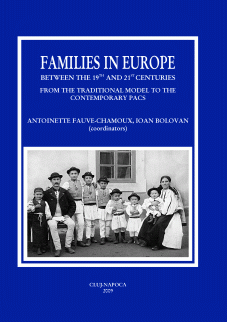Overview About the German Fertility Development, Theoretical Models and Effects of a Pro-Natalistic Population Politics
Overview About the German Fertility Development, Theoretical Models and Effects of a Pro-Natalistic Population Politics
Author(s): Wilko SchröterSubject(s): History
Published by: Centrul de Studiere a Populaţiei
Keywords: Historical Demography; Germany; fertility models; tempo effects; pro-natalistic population politics
Summary/Abstract: The consideration of the fertility development comes up a central position within social politics, because from the drastic decline in the birthrate of most industrial nations since the 1970s. In close future there arise significant sociopolitical consequences, starting from the planning of places in school and the education support about the sick person's financing and pension financing up to the migration politics and integration problems. The paper begins with a short outline about the historical development of fertility in Germany. An exact appraisal of the different conceivable sociopolitical measures becomes possible only if a theoretical explanation of fertile behaviour is given. In the next step, the quintessential points of six most important theoretical fertility models from four categories are introduced and their suitability is tested for the explanation of the German fertility development. Then the effect of a pro-natalistic population politics on the basis of GDR in 1972 will be demonstrated. At last possibilities of fertility increase and action recommendations for the relevant actors are given.
Journal: Romanian Journal of Population Studies
- Issue Year: 3/2009
- Issue No: Supplement
- Page Range: 343-360
- Page Count: 17
- Language: English
- Content File-PDF

